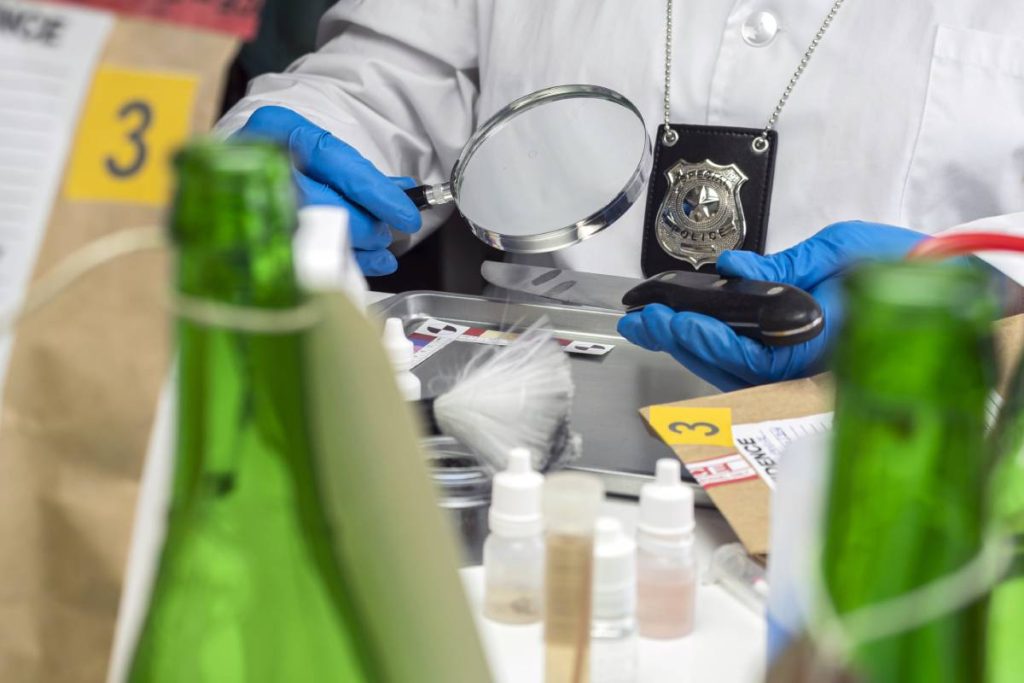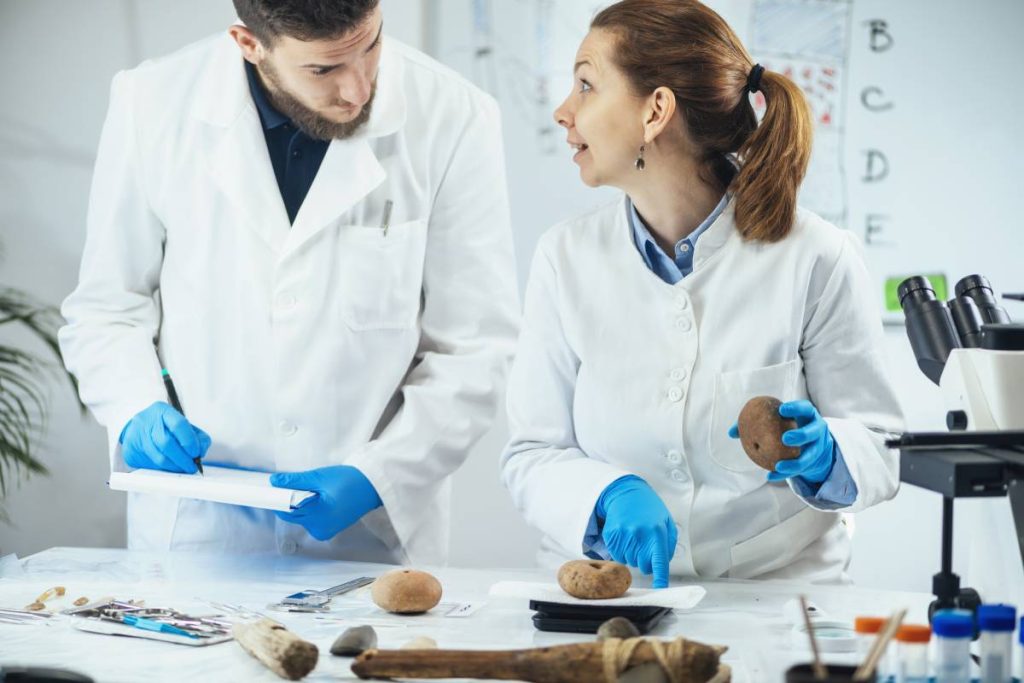Many aspiring professionals often wonder about the best degree paths in forensic science and whether pursuing a career in this field is worthwhile. As you explore the various educational options, it’s important to understand how different degrees align with your career goals in law enforcement, crime scene investigation, or laboratory analysis.
This blog post will guide you through the educational requirements and the career prospects in forensics, helping you make informed decisions that suit your aspirations.
Understanding Forensic Science
The field of forensic science combines principles of science and law to investigate and solve crimes. It plays a vital role in the criminal justice system by providing objective evidence that can either implicate or exonerate suspects. As you explore forensic science, you’ll find that it encompasses various disciplines and techniques, making it a compelling and dynamic field for those interested in unravelling mysteries.
Definition and Scope
The term forensic science refers to the application of scientific methods and techniques to investigate and analyze crime-related evidence. It covers a wide range of disciplines, including biology, chemistry, physics, and social sciences. As you investigate deeper into the field, you’ll discover how these various branches intersect to provide a comprehensive understanding of criminal activities and their consequences.
Key Areas of Specialization
After recognizing the broad nature of forensic science, you can explore key areas of specialization that align with your interests. These may include forensic biology, forensic chemistry, forensic psychology, and digital forensics, among others. Each specialization plays a unique role in the investigation process, providing specific insights and techniques tailored to various types of evidence and cases.
Scope extends beyond traditional crime scene investigations and includes analysis of biological materials, toxicology reports, digital evidence from electronic devices, and even behavioural insights. Within these specialities, you can find roles such as forensic pathologists, crime scene investigators, and forensic accountants. Understanding these areas will help you determine which path resonates with your career aspirations in the field of forensic science.

Educational Pathways in Forensic Science
There’s a diverse array of educational pathways available in forensic science, each offering specific training and knowledge imperative for a successful career. As you explore your options, consider the degree level that aligns with your career goals, as well as the areas of forensics that interest you, such as crime scene investigation, laboratory analysis, or digital forensics.
Associate Degrees
About an associate degree in forensic science typically takes two years to complete and provides foundational knowledge in the field. This degree gives you opportunities to enter entry-level positions or pursue further studies in forensics.
Bachelor’s Degrees
An increasing number of employers prefer candidates with a bachelor’s degree in forensic science or a related field. This four-year program typically involves coursework in biology, chemistry, and criminal justice, equipping you with the skills necessary to analyze evidence and apply scientific principles in forensic investigations.
To enhance your career prospects, a bachelor’s degree often includes practical experiences, such as internships, allowing you to work alongside professionals in the field. This hands-on learning is beneficial as it not only strengthens your resume but also provides valuable networking opportunities that can be instrumental in securing a job after graduation.
Graduate Degrees
Between associate and bachelor’s degrees, there are master’s and doctoral programs in forensic science that can further advance your career. Pursuing a graduate degree allows you to specialize in areas such as forensic psychology, forensic biology, and forensic chemistry.
But obtaining a graduate degree often places you in higher-demand roles, such as senior forensic analyst or forensic professor. These advanced degrees typically require research and a thesis, which can deepen your understanding of the field and enhance your professional development, making you a more competitive candidate in the job market.
Skills Required for Forensic Science Careers

Once again, beginning on a career in forensic science requires a diverse skill set that combines both technical and soft skills. Your ability to analyze information critically, pay close attention to detail, and communicate effectively can significantly impact your success in the field. Understanding both the scientific and interpersonal aspects of your role is vital in solving cases and contributing to the justice system.
Technical Skills
Careers in forensic science demand a robust foundation in scientific principles and methodologies. You will need proficiency in various laboratory techniques, analytical procedures, and knowledge of contemporary technologies used in crime scene investigations. Mastering tools like DNA analysis and toxicology will enhance your capability to produce reliable evidence that is pivotal in legal proceedings.
Soft Skills
Forensic professionals must also possess strong soft skills that complement their technical expertise. Communication skills are necessary for conveying complex information clearly to law enforcement, attorneys, and juries. Additionally, strong problem-solving abilities and teamwork are important, as you often collaborate with other professionals to analyze evidence and draw conclusions.
It is important to cultivate emotional resilience and be able to handle sensitive situations, as working in forensic science often involves exposure to traumatic crime scenes and distressing cases. The ability to remain composed under pressure will not only build your reputation but will also enhance your effectiveness in contributing to justice and accountability.
Career Opportunities in Forensic Science
Now that you’re considering a career in forensic science, you’ll discover a wide array of opportunities. The field offers various paths you can take, whether you are interested in working in crime labs, government agencies, or private sectors. From specializing in physical evidence analysis to consultancy roles, there’s a niche that fits your skills and interests. Your ability to combine scientific knowledge with investigative techniques will serve you well in this dynamic field.
Employment Sectors
The employment sectors for forensic science professionals are diverse and expansive. You can find positions in law enforcement agencies, such as local police departments and federal institutions like the FBI. Additionally, forensic scientists often work in government laboratories, academic institutions, and private forensic firms. There are also opportunities in hospitals and medical examiner’s offices where forensic pathology is practised. Your qualifications will determine the specific sector that aligns with your career goals.
Job Titles and Roles
With a degree in forensic science, you can pursue various job titles across multiple roles. Your path may lead to becoming a forensic analyst, crime scene investigator, or forensic pathologist. You could also specialize in areas like toxicology, digital forensics, or forensic chemistry. The diversity in roles allows you to explore positions as a forensic technician or a forensic accountant, each requiring unique skill sets.
Science and technology continue to evolve, opening up new career paths within forensic science. As a forensic investigator, you may work at crime scenes, collecting and analyzing evidence to support criminal investigations. Additionally, forensic analysts often work in labs, examining physical evidence using advanced scientific techniques. In specialized roles, such as forensic psychologists, you will utilize your understanding of behavioural science to assist in criminal profiling. Your choices can significantly impact the justice system, making your work vital and impactful.
Salaries and Job Outlook
For those considering a career in forensic science, understanding salaries and job outlook is vital for your decision-making process. The profession offers a range of opportunities across various sectors, with increasing demand for skilled forensic scientists. This ensures a promising career path and financial stability as you advance in your role.
Average Salaries by Position
Average salaries in forensic science vary based on your position, experience, and location. For example, forensic scientists typically earn between $50,000 and $80,000 annually, while forensic analysts may receive around $60,000 to $85,000. Meanwhile, forensic psychologists can command salaries upwards of $90,000, depending on their expertise and credentials.
Future Demand for Forensic Scientists
Around the globe, the demand for forensic scientists is projected to grow significantly over the next decade. As law enforcement agencies increasingly rely on forensic evidence to solve crimes, the need for trained professionals in this field expands. With technological advancements and a growing emphasis on crime-solving techniques, you can expect a steady increase in job opportunities.
Another aspect to consider is the evolving landscape of forensic science due to improvements in technology and expanded crime lab capabilities. As new methods emerge, including DNA analysis and digital forensics, there is a growing requirement for qualified experts. This ensures that your skills remain relevant and in demand, ultimately enhancing your career prospects in the field.

Factors to Consider When Choosing a Degree
Despite the allure of a career in forensic science, selecting the right degree requires careful consideration of several factors. You should evaluate:
- Your area of interest within forensic science
- The level of education required for your desired position
- The relevance of coursework to your career aspirations
- Your financial investment in terms of tuition and potential student debt
- The availability of programs in your location
This thoughtful approach will help you align your educational pathway with your professional ambitions.
Personal Interests and Strengths
Along your journey to a career in forensic science, it’s important to assess your personal interests and strengths. If you enjoy solving puzzles and have a passion for science, this field may resonate with you. Your ability to pay attention to detail, engage in critical thinking, and remain calm under pressure will be critical assets in this profession.
Long-term Career Goals
Goals play a significant role in determining the degree you pursue. You should consider the various career paths in forensic science, such as forensic analysis, criminology, or law enforcement. Each path may require specific educational qualifications or skills, shaping which degree to choose.
To ensure your degree aligns with your long-term ambitions, research the educational requirements for the roles you’re interested in. Are you aiming for a laboratory position that necessitates a sciences degree, or perhaps a field role that demands a different focus? By mapping out your desired career trajectory, you can better select a degree that not only fulfils the qualifications but also positions you for future advancement in the field of forensic science.
Summing up
On the whole, choosing a degree in forensic science, such as a Bachelor’s or Master’s in forensic science, criminal justice, or biology, aligns well with your career aspirations in this field. Forensics can offer a rewarding career full of diverse opportunities in law enforcement, laboratories, and beyond, making it a viable choice for those passionate about justice and science.
By pursuing the right educational path and gaining relevant experience, you can effectively position yourself for success in the intriguing world of forensic science.

